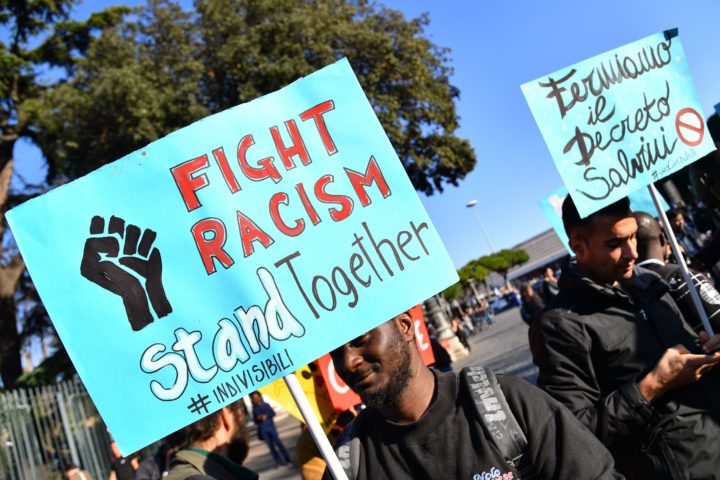Americans aren’t the only ones dealing with racism on a day to day basis. Across the way in Europe, racial profiling, police brutality, and discrimination in the workplace have been on the rise in the last five years.
From the twelve reported European countries, Finland has the highest race-related crime rates as opposed to the United Kingdom with the lowest rates. In a survey conducted by Being Black in the EU, the numbers were eye-opening for officials. Five percent said they had racial experiences at the hands of police officers. Behind Finland, Ireland and Austria had a 13 percent crime rate. Majority of the survey participants were first and second-generation immigrants, coming from sub-Saharan African countries. Many decided not to report the incidents because they felt it wouldn’t change anything or they were simply afraid of the police.
“The survey paints a dire picture of the reality on the ground,” said agency director Michael O’Flaherty. “It is a reality both shameful and infuriating: racism based on the color of a person’s skin remains a pervasive scourge throughout the European Union.”
RELATED: What It Means To Be Black In Paris
While being stopped by the police is a major issue overseas, the issue of labor is another. Residents of African descent with a degree were reported twice as likely to work in occupations requiring minimal skills than the general population. Problems in the workforce were rated high in Austria, Italy, and Luxembourg. The same goes for private and public housing, as well as education. Austria and Italy were named top contenders as ten percent of survey participants said they were discriminated against while trying to rent an apartment or house. O’Flaherty says there has been “intensified efforts” to promote inclusion across the EU but the numbers prove differently, especially for women.
African women who are Muslim experience severe discrimination in the EU. Twenty-seven percent said they received unwanted staring or offensive gestures. A combined 17 percent reported verbal and physical attacks.
RELATED: 6 American Alternatives To Popular European Destinations
Out of the subjects surveyed, black Europeans settled for over three generations were not included since the EU doesn’t collect such data. “We do not claim that we represent the experience of all black people in the European Union,” said report author Rossalina Latcheva. “These results are indicative for experiences of different people of African descent also from third or fourth generation, fifth generation.”
Results will be revealed in the European Parliament on Wednesday at an event hosted by Italian politician Cécile Kyenge. Kyenge is one of three black members of 751 in the Parliment, raising another issue of inclusion in European politics.
